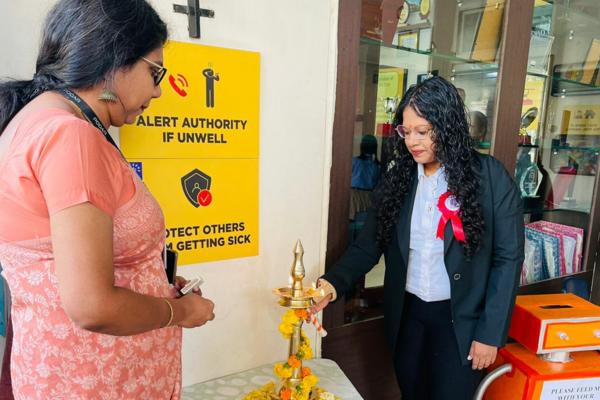Counseling
Counseling during pregnancy, also known as antenatal counseling, is an important aspect of prenatal care that addresses the emotional, psychological, and educational needs of expectant parents. This type of counseling helps parents prepare for the physical and emotional changes of pregnancy, childbirth, and early parenthood. Here’s a comprehensive guide on antenatal counseling:### Key Components of Antenatal Counseling1. *Emotional Support*: - *Managing Anxiety and Stress*: Addressing fears and anxieties related to pregnancy, childbirth, and parenting. - *Mental Health Screening*: Identifying and managing conditions such as depression, anxiety, or other mental health issues.2. *Educational Guidance*: - *Pregnancy and Birth Education*: Providing information on fetal development, labor and delivery processes, and pain management options. - *Breastfeeding and Newborn Care*: Educating about breastfeeding techniques, newborn care, and postpartum recovery.3. *Relationship Support*: - *Partner Involvement*: Encouraging partners to participate in counseling sessions to strengthen their relationship and support network. - *Communication Skills*: Enhancing communication between partners and preparing for shared parenting responsibilities.4. *Lifestyle and Health Counseling*: - *Nutrition and Exercise*: Advising on proper diet, safe exercise, and lifestyle modifications to ensure a healthy pregnancy. - *Avoiding Harmful Substances*: Counseling on the risks of smoking, alcohol, and drug use during pregnancy.5. *Birth Planning*: - *Creating a Birth Plan*: Helping parents formulate a birth plan that reflects their preferences for labor and delivery. - *Discussing Pain Management*: Educating about various pain relief methods and coping strategies during labor.6. *Preparation for Parenthood*: - *Parenting Skills*: Offering guidance on newborn care, sleep routines, and feeding schedules. - *Coping Strategies*: Teaching stress management and self-care techniques to handle the demands of new parenthood.### Specific Topics Covered in Antenatal Counseling1. *First Trimester (0-13 Weeks)*: - *Emotional Adjustment*: Helping parents cope with the initial emotional changes and possible early pregnancy symptoms. - *Lifestyle Changes*: Advising on early lifestyle adjustments, including diet, exercise, and avoiding harmful substances.2. *Second Trimester (14-26 Weeks)*: - *Fetal Development*: Educating about significant milestones in fetal growth and development. - *Health and Wellness*: Addressing common second-trimester concerns like weight gain, back pain, and sleep disturbances.3. *Third Trimester (27-40 Weeks)*: - *Labor and Delivery*: Preparing parents for the labor process, signs of labor, and when to go to the hospital. - *Postpartum Planning*: Discussing postpartum recovery, mental health, and support systems for after the baby is born.### Methods of Antenatal Counseling1. *Individual Counseling*: - *Personalized Support*: One-on-one sessions tailored to address specific concerns and needs of the expectant mother. - *Confidential Environment*: Providing a safe and confidential space for discussing sensitive issues.2. *Group Counseling*: - *Peer Support*: Group sessions allow parents to share experiences and support each other. - *Educational Workshops*: Classes covering various topics such as childbirth education, breastfeeding, and newborn care.3. *Couples Counseling*: - *Strengthening Relationships*: Focusing on the couple’s relationship, communication, and joint preparation for parenting. - *Joint Decision-Making*: Helping couples make informed decisions together about childbirth and parenting.4. *Online Resources and Telecounseling*: - *Accessibility*: Providing access to counseling through online platforms for those unable to attend in-person sessions. - *Flexibility*: Offering flexible scheduling and resources like webinars, videos, and online support groups.### Benefits of Antenatal Counseling1. *Enhanced Emotional Well-being*: - Reduces anxiety and stress, improving overall mental health. - Provides coping mechanisms for managing emotional changes during pregnancy.2. *Informed Decision-Making*: - Empowers parents with knowledge about pregnancy, childbirth, and parenting. - Helps parents make informed choices about their health and the care of their baby.3. *Improved Relationship Dynamics*: - Strengthens the bond between partners through improved communication and mutual support. - Prepares both parents for shared responsibilities and teamwork in parenting.4. *Better Preparedness for Parenthood*: - Equips parents with practical skills and knowledge for newborn care and postpartum recovery. - Helps set realistic expectations and prepares for the challenges of early parenthood.
READ MORE










